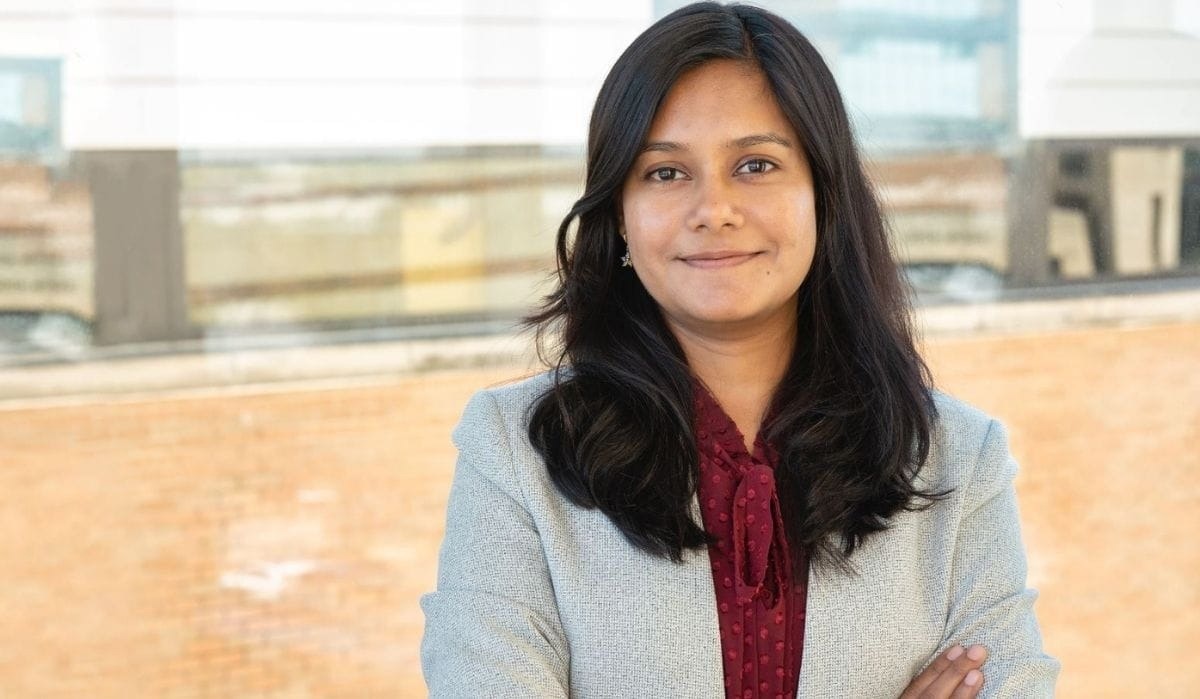A University of Texas at Arlington civil engineering researcher is trying to replicate Roman concrete by using 3D-printed materials to repair damaged or dying coral reefs. The researcher was inspired by the amazing longevity of ancient Roman construction materials in seawater.
 Warda Ashraf. Image Credit: University of Texas at Arlington
Warda Ashraf. Image Credit: University of Texas at Arlington
Warda Ashraf, associate professor at the Department of Civil Engineering, will lead a multidisciplinary team that will be supported by a $2 million National Science Foundation (NSF) grant to create 3D-printed artificial reefs.
The team’s research is named “Carbon Sequestration and Coastal Resilience Through 3D Printed Reefs” and is part of the National Science Foundation’s Emerging Frontiers in Research and Innovation program
In the past few decades, artificial reefs made from concrete, old tires and old ships were used. But those just don’t work well because seawater disintegrates those materials, and many of them cause additional environmental pollution. We can replicate Roman concrete, which lasts longer and is better for the environment. We will modify the concrete recipe to store carbon and offer a novel pathway to permanently sequester thousand tons of carbon under the ocean in addition to providing coastal resilience and supporting marine habitat.
Warda Ashraf, Associate Professor, Department of Civil Engineering, University of Texas at Arlington
Small cubes and cylinders of the replicated Roman concrete have already been placed in Baffin Bay, in the Gulf of Mexico, just south of Corpus Christi, according to Ashraf. She asserted that marine life adores it.
Ashraf added, “We have already done some testing there. Barnacles that have attached themselves to the new reef really grab hold of it. The materials also got 40% to 50% stronger in seawater within five months.”
The National Oceanic and Atmospheric Administration Fisheries and The World Counts estimate that approximately 40% of reefs and the ecosystems that support them have already been harmed by climate change, making the effort crucial. Coral reefs could be extinct by the end of this century, according to some researchers.
Coral reefs are essential for both removing carbon dioxide from the atmosphere and shielding coastal communities from severe weather events like storms and flooding.
The multidisciplinary team includes Adnan Rajib, an assistant professor of civil engineering at UT Arlington, and Laura Mydlarz, a biology professor at UT Arlington, as the principal investigator.
Mydlarz is a coral reef expert who will investigate whether the artificial reef material can coexist with natural reefs and how new coral interacts and grows with the artificial reef. Rajib specializes in natural climatic solutions.
He will create a coastal hydrodynamic model to calculate the size of the artificial reefs and how they will mitigate the effects of sea level rise and coastal flooding. The study will also include researchers from the University of Texas at Dallas and Texas A&M University-College Station.
Ashraf had previously obtained two Defense Advanced Research Projects Agency (DARPA) projects totaling approximately $740,000 to develop long-lasting marine concrete. In 2020, she was awarded a DARPA Young Faculty Award to fund the development of a cementitious material that resembles Roman concrete. She was also awarded the DARPA Directors Award in 2022 for testing the performance of those materials in the field.
Ashraf’s work is a remarkable example of reaching beyond the university for a project that could save natural resources, according to Melanie Sattler, chair, and Dr Syed Qasim Professor in the Department of Civil Engineering.
Her work is astounding. This artificial reef holds so much promise for the entire world.
Melanie Sattler, Chair and Dr Syed Qasim Professor, Department of Civil Engineering, University of Texas at Arlington